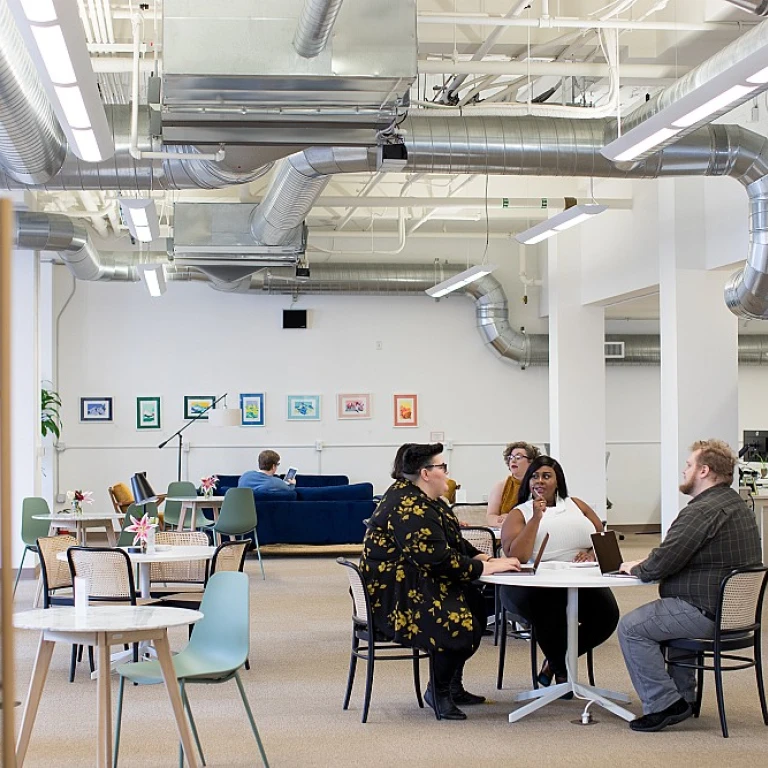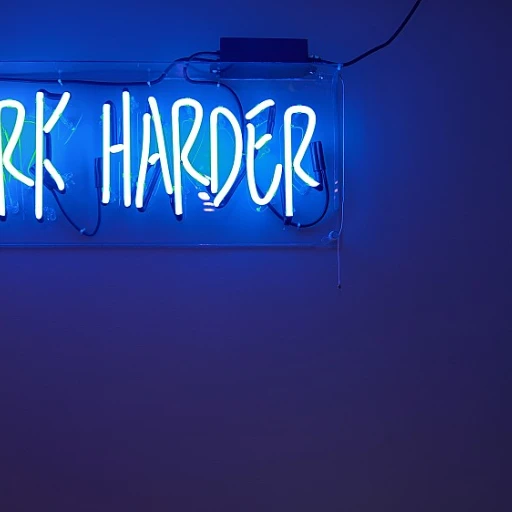The Rise of AI in Human Resources
The Transformative Journey of AI in the HR Sector
The integration of artificial intelligence into human resources is not just a trend; it's a significant shift that is reshaping the landscape of organizational management. This transformation is driven by the need for more efficient, accurate, and insightful ways to manage the complex world of HR. AI's role in this sector continues to evolve, offering innovative solutions that address longstanding challenges and promote a more strategic approach to HR management.
As organizations seek to harness the full potential of AI, the focus is on how these technologies can facilitate better decision-making and enhance HR functions. For instance, AI algorithms are increasingly being used to sift through large volumes of data, uncovering patterns and trends that would otherwise remain hidden. These data-driven insights are proving invaluable in areas such as recruitment, employee retention, and performance evaluation, all of which are crucial for maintaining a competitive edge in today's fast-paced business environment.
Moreover, AI is playing a pivotal role in fostering a more engaged and satisfied workforce by personalizing the employee experience, streamlining processes, and providing timely feedback. By doing so, it is not only improving employee satisfaction but also boosting overall productivity and organizational success.
To delve deeper into how AI is shaping HR analytics for better decision making, explore the significant strides and possibilities in this
insightful exploration of technology's role in revolutionizing the HR sector.
Data-Driven Insights for Better Decision Making
Leveraging Data for Strategic HR Decisions
In recent years, artificial intelligence has transformed the way organizations approach human resources by offering data-driven insights that propel informed decision-making. This shift marks a significant evolution in HR practices, allowing professionals to rely on empirical data rather than instinct alone.
Traditionally, HR departments heavily relied on subjective evaluations and reports. However, with the advent of AI, there's been a paradigm shift towards using advanced algorithms that extract meaningful patterns from vast datasets. By adopting this innovative approach, HR teams can now anticipate trends, address workforce challenges proactively, and tailor their strategies to meet organizational goals effectively.
One of the most notable benefits of AI-powered analytics is its capacity to unearth hidden insights that often go unnoticed. For instance, these systems can identify correlations between employee engagement levels and productivity, enabling HR managers to devise targeted interventions. Additionally, AI can help in pinpointing areas where employee turnover might be an issue and suggest retention strategies, ultimately contributing to a stable and engaged workforce.
Moreover, AI-driven HR analytics facilitate transparency and objectivity in the decision-making process. By removing the bias inherent in human judgment, organizations can ensure fairer evaluations and promotions, leading to a more equitable workplace. This objectivity, combined with real-time data analysis, ensures that HR decisions align closely with the organization’s overarching strategic objectives.
For those interested in exploring the comprehensive impact of artificial intelligence on HR practices,
this article provides an excellent overview of how AI is reshaping HR analytics for superior decision-making efficacy. By embracing these technological advancements, HR professionals are setting a new standard for strategic human capital management in the modern workplace.
Enhancing Employee Experience and Engagement
Transforming Employee Experience and Engagement
Incorporating artificial intelligence into HR practices is ushering in a new era of personalized employee experience, focusing on creating an engaging and satisfying work environment. As organizations increasingly rely on data-driven insights for improved decision-making, they are also leveraging AI to tailor experiences that cater to the individual needs and preferences of their workforce.
AI technologies enable HR teams to analyze vast amounts of data collected from employee interactions, feedback, and performance metrics, allowing them to identify trends and patterns that might go unnoticed through traditional methods. By understanding these insights, companies can make more informed decisions to drive employee satisfaction and productivity.
One key area where AI is making a significant impact is in employee records management. The integration of AI systems streamlines and revolutionizes the way HR departments handle employee data, ensuring that records are accurate, up-to-date, and secure. This transformation not only improves efficiency but also frees up HR professionals to focus on more strategic initiatives, directly supporting efforts to enhance the employee experience. For a deeper dive into how HR is leveraging AI in this domain, check out how human resources AI is revolutionizing employee records management.
By focusing on individual preferences and adapting to employee needs in real-time, AI-driven HR practices foster a culture that prioritizes engagement and morale. In turn, a motivated workforce positively impacts organizational performance, making AI an indispensable tool for today's HR professionals. As AI technologies continue to evolve, their role in transforming the workplace and enriching employee experiences will undoubtedly expand, setting the stage for the future of work in the age of AI.
Talent Management in the Age of AI
AI-Enhanced Talent Acquisition and Retention
In the evolving landscape of human resources, AI's role goes beyond merely automating tasks; it transforms the talent management sphere. Traditional methods of hiring and retaining employees have been revolutionized, paving the way for data-driven strategies that align with organizational goals more naturally and effectively.
AI's capability to sift through vast amounts of data in a fraction of the time allows HR professionals to identify potential candidates who perfectly match the company's skills and cultural requirements. This process isn't just about speeding up hiring. AI facilitates more accurate predictions about candidates' success within the organization, making the onboarding process smoother and more efficient.
Moreover, by identifying patterns in employee performance and turnover, AI provides insights that help HR teams refine their retention strategies. It’s not only about finding the right talent but also nurturing it. Algorithms can predict which employees are most likely to leave and why, providing a basis for proactive engagement efforts tailored to individual preferences and career aspirations.
As noted in previous discussions on AI's impact on human resources, the precise use of AI in workforce management aids in real-time performance tracking and enhances the employee experience. By aligning personal development opportunities with employees' career trajectories, organizations can boost engagement and satisfaction.
Ultimately, as the future of work continues to unfold, AI will increasingly become an invaluable tool for HR professionals looking to stay ahead in talent acquisition and retention. With AI-driven insights, the strategic management of workforce resources becomes not just a possibility but a clear pathway to organizational success.
Continuous Monitoring and Feedback
In today's fast-paced work environment, providing timely feedback and continuously monitoring employee performance have become vital components of effective human resources strategies. Thanks to artificial intelligence, real-time performance management has become increasingly practical and impactful. AI-powered tools enable HR professionals to gather and analyze performance data consistently without relying solely on traditional periodic reviews.
These tools facilitate constant communication and feedback loops between employees and managers, promoting a more agile and responsive workplace culture. For example, AI-driven performance management systems can identify patterns and trends in employee productivity, helping managers address potential issues before they become significant hurdles. This proactive approach fosters an environment where employees feel supported and engaged, as they receive constructive feedback and opportunities for improvement in real-time.
The Role of Predictive Analytics in Performance
One of the key advancements that AI brings to performance management is the power of predictive analytics. By analyzing vast amounts of data from various sources, AI can predict potential performance bottlenecks, employee dissatisfaction, or even the likelihood of employee attrition. This predictive capability empowers HR teams to take proactive measures, such as targeted training sessions or personalized development plans, to enhance employee satisfaction and productivity levels.
Moreover, predictive analytics can highlight high-performing employees, allowing organizations to recognize and reward talent effectively, thereby reducing the risk of losing valuable team members. As AI continues to evolve, integrating these predictive capabilities into daily performance management practices ensures that HR leaders are not merely reactive but are strategically positioned to guide their workforce towards organizational goals.
Integrating AI in Employee Development
AI's role in performance management also extends to personalized employee development plans. By utilizing AI to assess various metrics, organizations can create tailor-made development programs that align with both the employees' professional goals and the company’s objectives. These personalized plans help employees develop essential skills and competencies, ensuring they remain competitive in the ever-evolving job market.
In summary, the integration of AI into performance management transforms it into a dynamic, real-time process that not only supports effective decision-making but also enhances the overall employee experience. By continuously monitoring performance and leveraging predictive analytics, HR professionals can drive performance and engagement, paving the way for a more efficient and resilient workforce.
Future of Work with AI and HR Analytics
Opportunities and Adaptations in the Workplace
As we ponder the future of work with the integration of artificial intelligence in HR analytics, the landscape is set to undergo significant transformations. AI is not just a disruptive force; it's an enabler that offers profound opportunities for businesses and employees alike. Human resources professionals are finding themselves at the crossroads of technological evolution, adapting and harnessing these changes to build future-ready organizations.
AI-driven HR practices are leading the charge in reshaping traditional workflows, making them more agile and efficient. This evolution calls for both employers and employees to cultivate new skills and adopt a mindset that embraces continuous learning and flexibility. For employers, this means investing in training programs that equip their workforce with the digital fluency necessary to thrive in an AI-enhanced environment.
For HR teams, leveraging AI tools offers a strategic advantage in workforce planning and development. By incorporating AI analytics, HR can anticipate future staffing needs, identify skills gaps, and deploy training initiatives that are aligned with the business's long-term goals. This proactive planning ensures that organizations remain competitive and resilient in the face of an ever-evolving market landscape.
Additionally, the inclusion of AI within HR processes promotes inclusivity and diversity, as biases can be minimized through data-driven decision-making. By analyzing large datasets objectively, AI can help organizations to root out unconscious biases that may exist in hiring and promotion practices, ensuring a more equitable workplace for all employees.
As companies continue to integrate AI into their HR strategies, the notion of real-time performance management becomes increasingly feasible. Continuous feedback loops, career development opportunities, and personalized learning paths can be engineered through AI analytics, fostering a workplace culture that values growth and engagement.
In conclusion, the future of work is one where AI will be a collaborative partner in human resources, driving efficiencies and opening up new possibilities. In this dynamic environment, both HR professionals and the workforce must be prepared to adapt and innovate. The journey towards an AI-integrated workplace is not just a technological shift; it's a cultural one that will redefine how we perceive and engage with our work.








